- FROM THE TOP:
- POLAR’s Departmental Plan 2019-20
- Key indicators of Arctic climate change: 1971-2017
- POLAR’S PEOPLE:
- Meeting with Polar Shelf Continental Program
- Time to Lace Up Your Skates!
- The Disease that Knowledge Must Cure
- LEARNING AND PERFORMANCE
- #GetLoud on Mental Health Week in the Public Service
- Inuktitut Word of the Week - Qakuguttauq
- Are you ready to Talk the Talk?
- WORKPLACE NOTICES:
- Information Management Tip of the Week
- UPDATES:
- CHARS Campus Opening Working Group Update
- POLAR Events Calendar
- Key Outcomes from Senior Management Committee
FROM THE TOP:
POLAR’s Departmental Plan 2019-20
POLAR’s 2019-20 Departmental Plan (DP) was tabled in the House of Commons on April 12 outlining our priorities for this year. The Plan describes the activities we plan to perform and the results we plan to achieve in a clear, straightforward manner to provide transparency on how our Agency will spend taxpayers’ dollars over the next year to advance knowledge of Canada’s Arctic and strengthen Canada’s leadership in polar science and technology for the benefit of Northerners and all other Canadians.
Learn more about our Agency’s DP priorities for 2019-20 here.
Thanks to all POLAR employees for their help in producing this important document!
Key indicators of Arctic climate change: 1971-2017
In a recent study on Arctic climate change, entitled Key indicators of Arctic climate change: 1971–2017, researchers reinforce the notion that increasing air temperatures and precipitation are drivers of major changes in various components of the Arctic.
Rising concentrations of greenhouse gases result in widespread changes in Arctic ecosystems, such as:
- - condensed flowering and pollination;
- - timing mismatch between plant flowering and pollinators;
- - increased plant vulnerability to insect disturbance;
- - increased shrub biomass;
- - increased ignition of wildfires;
- - shifting animal distribution and demographics.
Want to learn more on Arctic climate change? Click here to read the full paper.
POLAR’S PEOPLE:
Meeting with Polar Shelf Continental Program
Earlier this month, Brigitte, Grant, Chris C. and Angut flew to Resolute, Nunavut, to explore collaboration opportunities with Polar Continental Shelf Program (PCSP), a program from Natural Resources Canada. PCSP provides logistics throughout the Canadian Arctic for field research that is conducted by Canadian government, university, northern, independent and international research organizations.
The main objective of the trip was to meet with PCSP staff and tour their main facility to learn about their operations, and assess whether aspects of their operations could be applied at CHARS to add value and minimize duplication. Specific areas of investigation exploration included:
- Warehousing systems and equipment management
- General facility management – challenges, preventative maintenance program
- Accommodation management
- Health and safety program – field and facility
- Future collaboration and support opportunities – field equipment, logistics, facility operation, research, staff exchanges.
“It was truly interesting to see the various similarities and differences between our two Northern organizations. POLAR can greatly benefit from PCSP’s expertise in providing logistics for field research and coordinating field equipment in Canada’s North” said Brigitte.
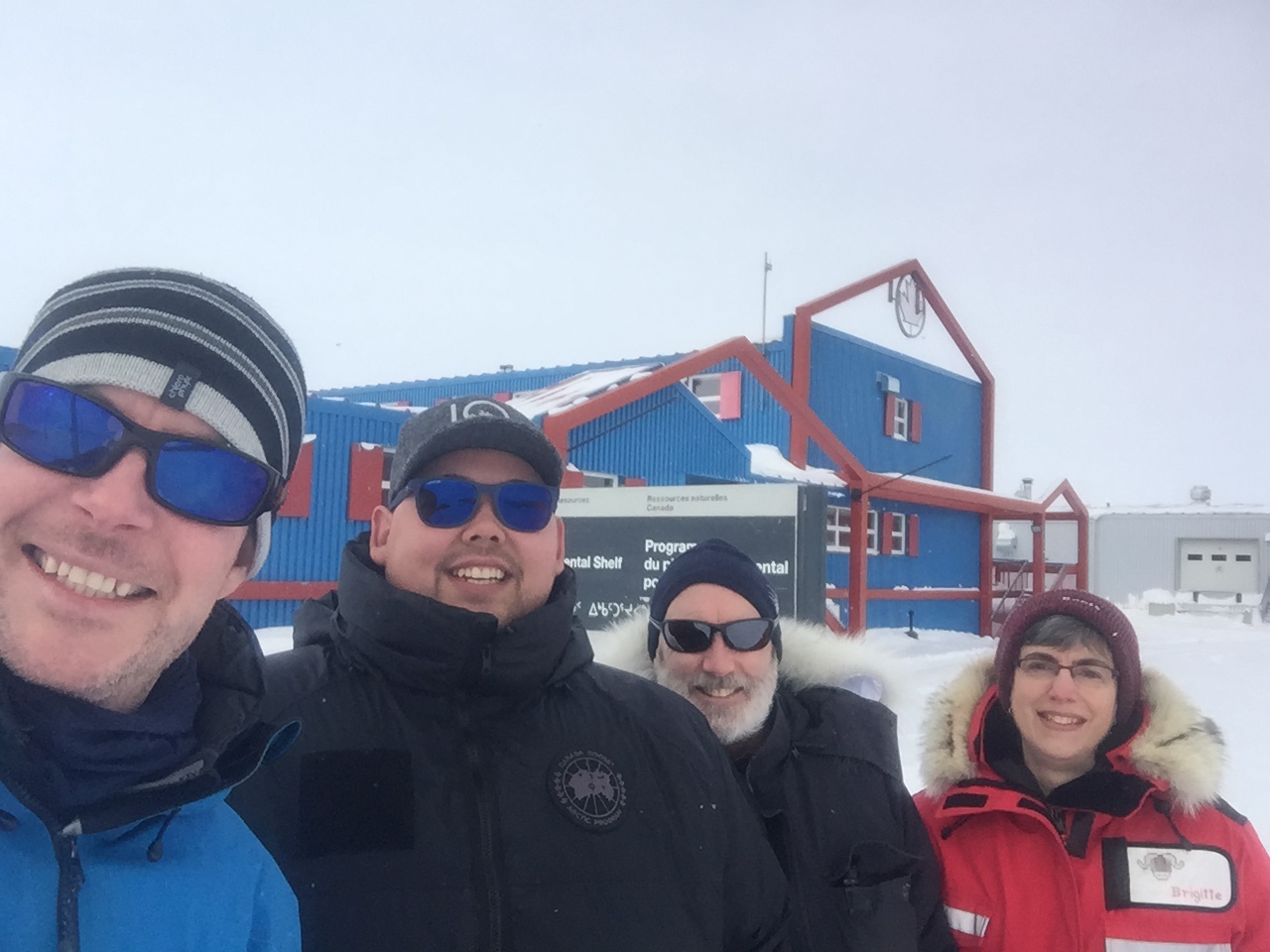
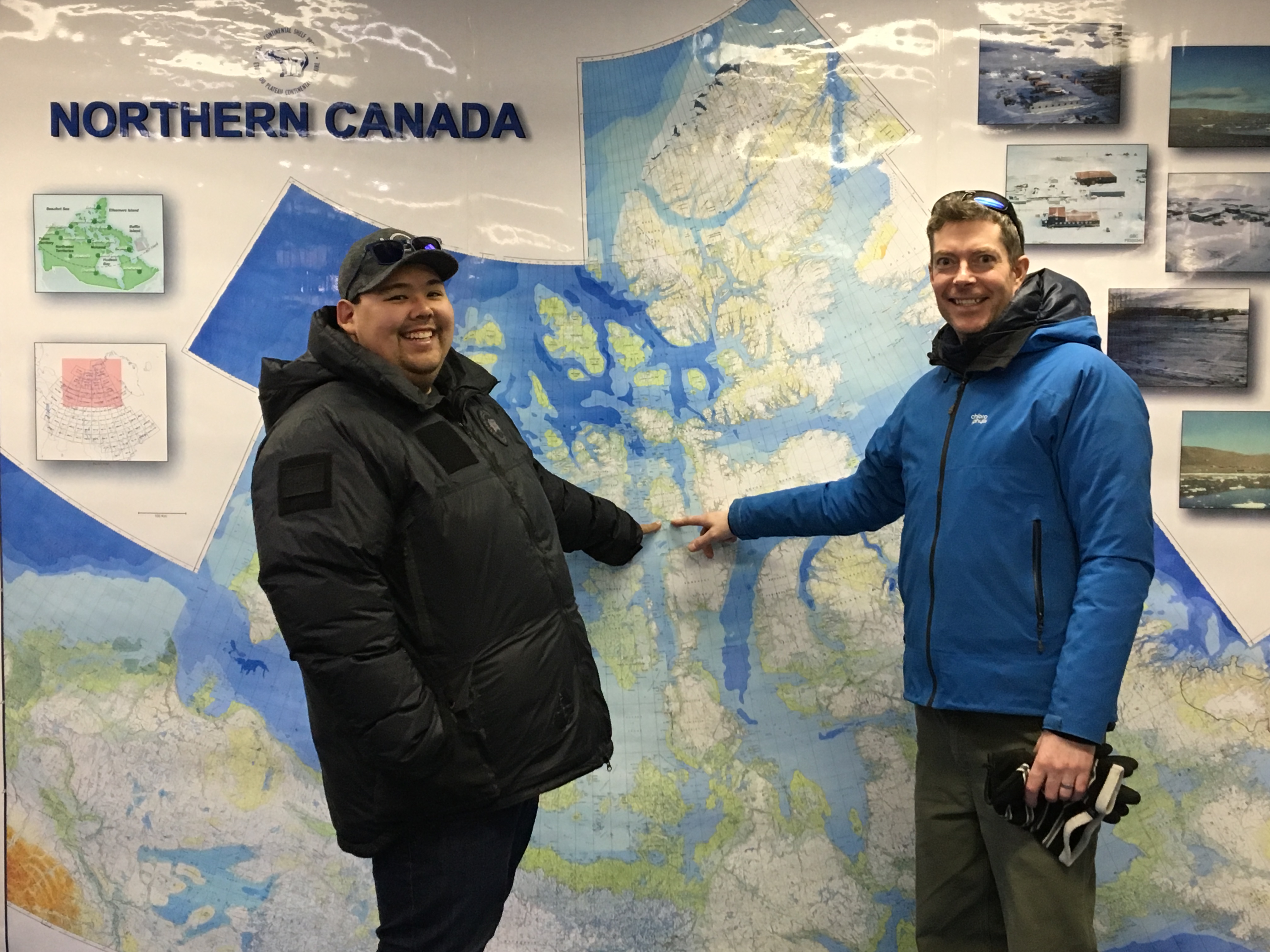
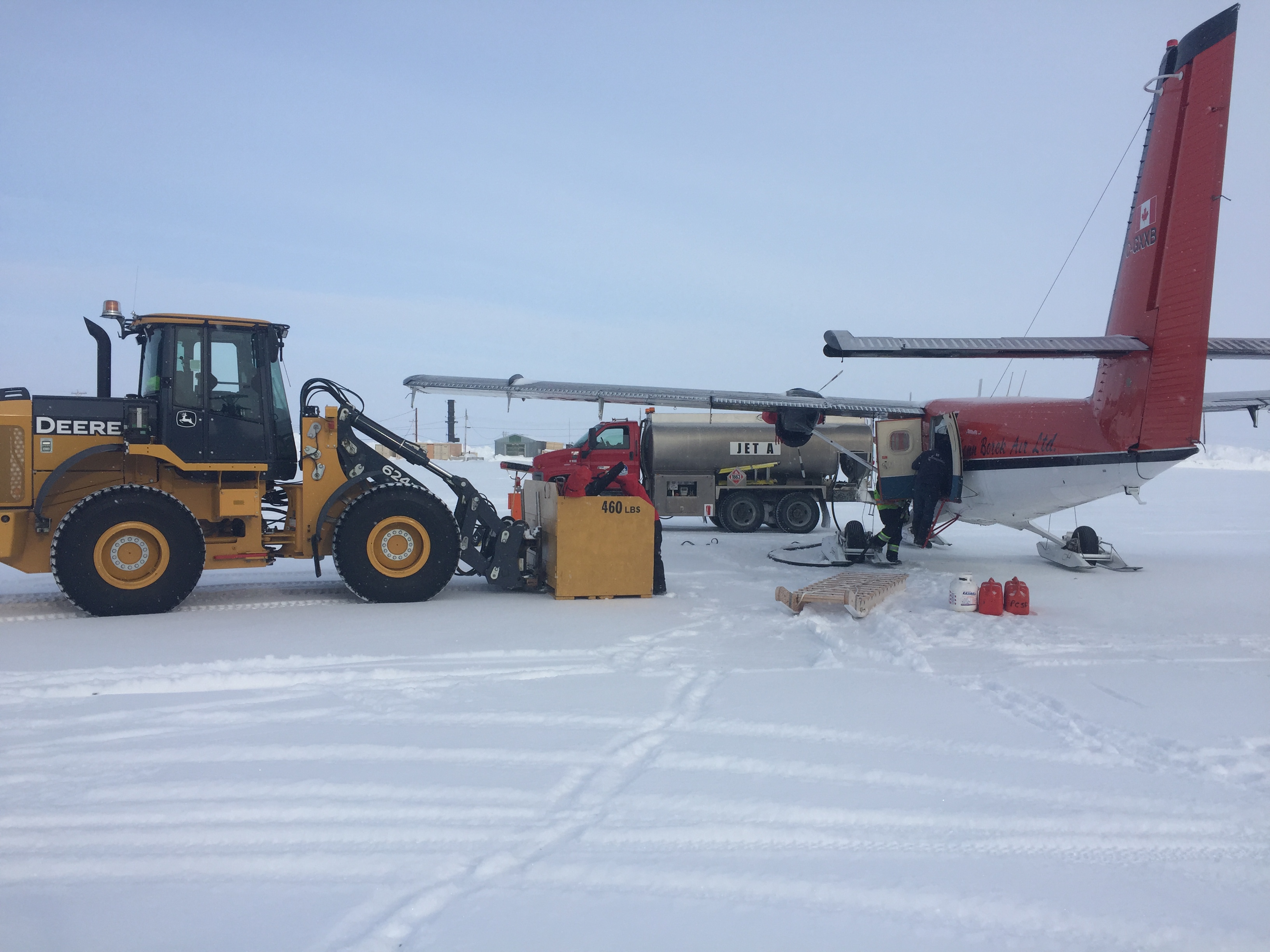



Time to Lace Up Your Skates!
The recent reopening of the Hamlet Recreation Complex was a long-awaited milestone for the community of Cambridge Bay. With students on spring break, the arena was buzzing with activities and skating fun over the last two weeks! In collaboration with the Hamlet, our colleague Marie-Eve LaRocque had the opportunity to give skating lessons on April 16-17 to young skaters who were eager to learn new skills and build on-ice confidence. Sessions consisted of a high-speed “ski-doo trail” along the boards, warm-up exercises, fun and challenging circuits, games and cool-down exercises.
More than 100 skaters, between the ages of 2 to 16, participated in the six sessions offered. “This was a wonderful opportunity to engage with the community and provide young skaters with new skating techniques,” said Marie-Eve. “I greatly enjoyed skating with such energetic and happy skaters.”
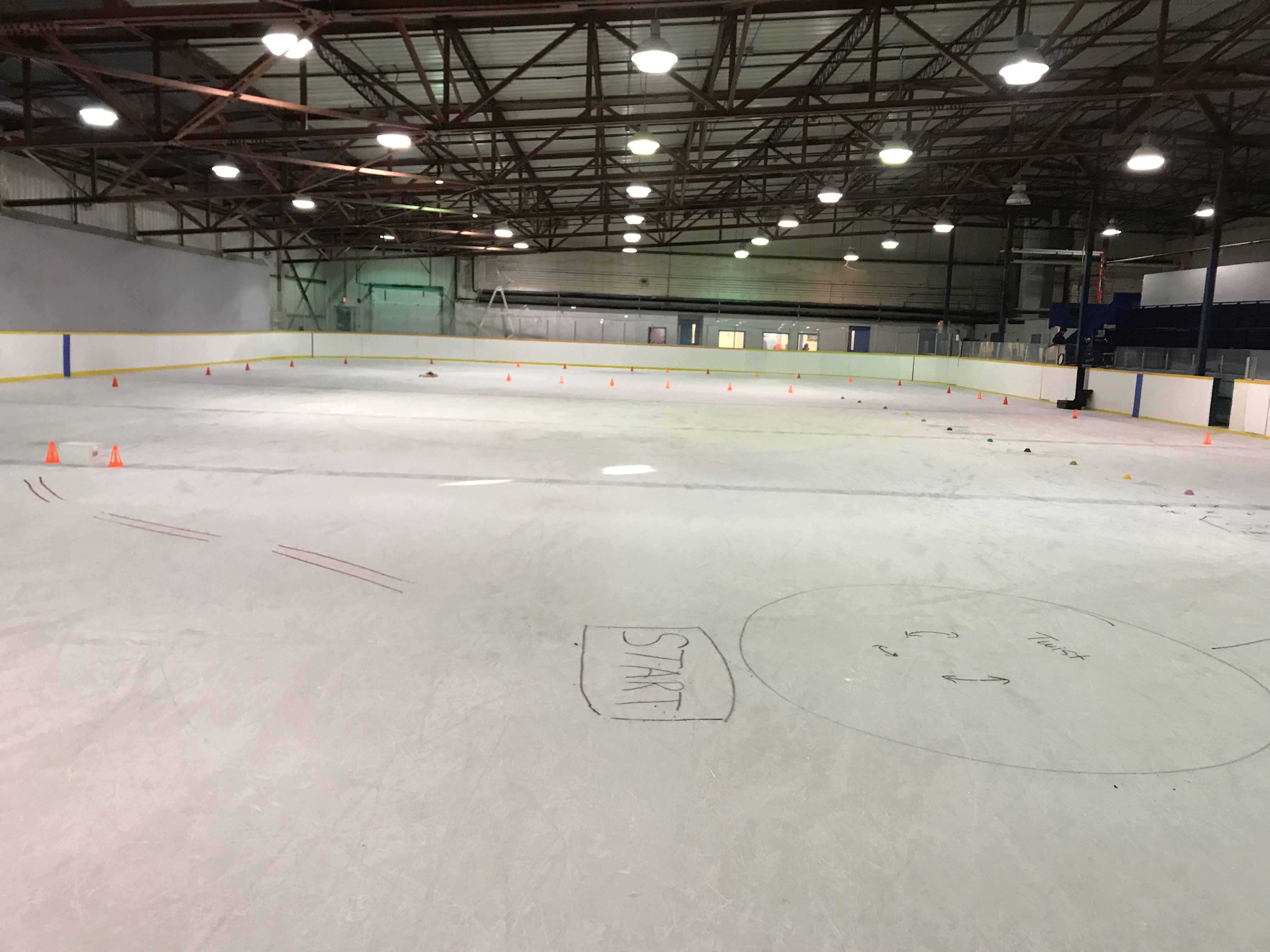



The Disease that Knowledge Must Cure
Uncertainty in Baker Lake, Nunavut, has become the threat to collective action, the disease that knowledge must cure. This was Jessica Metuzals’—a former POLAR employee who recently completed her Master’s of environmental studies at Queen’s University—thesis title. Last month, Jessica presented her graduate research to POLAR employees during a Lunch & Learn session in the Ottawa office. Her research focused on community experiences of uncertainty related to the controversial Kiggavik Project, a uranium mine proposal 80 km west of Baker Lake, Nunavut.

Drawing on qualitative fieldwork conducted in Baker Lake in November and December 2016, Jessica’s research identified key sites of uncertainty where AREVA (an international nuclear energy company), government officials, Inuit organizations, and community residents constructed, negotiated, experienced and responded to uncertainty. The analysis of these sites revealed diverse, dynamic and conflicting conceptualizations of self-sufficiency, and well-being which led to a biased and imagined future of Baker Lake. Jessica’s thesis aimed to demonstrate how, in order to have control over their future, Inuit have been forced to conform to western norms and knowledge systems. Despite this, Inuit ways of knowing and being have persisted, flourished, creatively adapted, and continue to be embedded in contemporary resource development controversies.
Read Jessica’s full graduate research here.

LEARNING AND PERFORMANCE
#GetLoud on Mental Health Week in the Public Service
Now in its 68th year, the Canadian Mental Health Association's (CMHA) Mental Health Week has become a Canadian tradition.
Join the Canada School of Public Service’s distinguished speakers for an armchair discussion on mental health in the workplace to launch Mental Health Week, which runs from May 6 to 12. Representatives of the Canadian Mental Health Association will address their experiences with workplace mental health and share new tools to help you express yourself on mental health. Use these new tools—available at mentalhealthweek.ca—to take stock of your own mental health. Representatives from Mental Health Centres and Networks of the Government of Canada will describe their services and activities.
For more information or to register, go to the Canada School of Public Service website here.
Inuktitut Word of the Week - Qakuguttauq
The Inuktitut word of the week is qakuguttauq. It means “goodbye”. It is pronounced: qa-koo-goot-towq
Listen to the pronunciation here.
Are you ready to Talk the Talk?
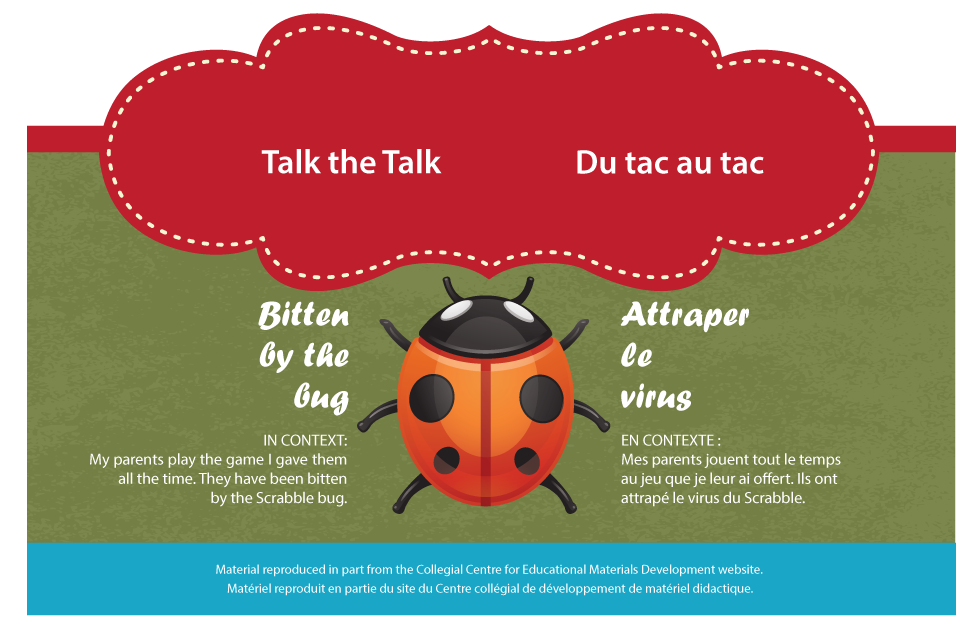
WORKPLACE NOTICES:
Information Management Tip of the Week
In this week’s Information Management (IM) tip of the week, our colleague Renée Bergeron gives us examples of the types of information that are of business value and which you might create, acquire or collect to document business functions and activities. They include:
- transactions – orders, receipts, requests, confirmations;
- interactions between clients, vendors, partners;
- planning documents – budgets, forecasts, work plans, blueprints (technical or engineering designs), information architecture schematics;
- reports, policy, briefing notes, memoranda, or other papers supporting business activities – all significant versions (those that were circulated for comment or that contain comments related to the substance of the content and provide evidence of the document's evolution), the final product, distribution information;
- meeting documents – agendas, official minutes, records of decision;
- records of contact with lobbyists (This supports the Lobbying Act that requires designated public office-holders to retain information about contact with lobbyists);
- committee documents – terms of reference, list of members;
- form letters or templates used to collect responses, related instructions, completed responses in any format;
- client records – applications, evaluations, emails, assessments;
- records of discussions, deliberations, or any situation related to any of the above that further documents the decisions made along with the logic used; and,
- information resources which could provide additional information for auditing and monitoring activities and programs.
It is essential to retain these types of information on record, and to protect them against damage and loss.
For more information, please contact Renée at renee.bergeron@polar.gc.ca.
UPDATES:
CHARS Campus Opening Working Group Update
Although the date for the official opening has yet to be confirmed, the CHARS campus opening working group has been hard at work to plan for POLAR-led activities around the opening. Marie-Eve LaRocque met with employees in Cambridge Bay last week to discuss roles, responsibilities and logistics to help support this key event for the Agency.
The key POLAR-led activities planned for the opening include:
- 1) POLAR Exhibit: the exhibit comprises of two Museum of Nature exhibits (Arctic Flora and Beneath the Surface: X-Rays of Arctic Fish), a Calgary and Glenbow Museum exhibit (The Arctic Photographs of Geraldine and Douglas Moodie), a scientific table with local vascular plants, Frozen Ground comic strips, as well as local insects and scientific equipment displays.
- 2) POLAR Mural: Guests and students will be invited to write their wish for the CHARS campus on whish cards specifically designed for the official opening.
- 3) Science activities for students: Scientific experiences will be organized to introduce students of all ages to basic scientific concepts.
- 4) Kids coloring activity: Large 3’x4’ coloring pages, featuring the Canadian Museum of Nature’s Arctic coloring pages, as well as POLAR’s 8.5”x11” coloring pages will be available for kids at the official opening.
- 5) Giant floor map: A giant floor map will be set up in the informal meeting area and used for learning activities about the Arctic that were developed in partnership with Canadian Geographic.
- 6) Tours of the CHARS campus: Tours of the CHARS campus will be led by POLAR staff to demonstrate the various functionalities of the campus, such as the General Computing Lab (GCL) – See photos below. Booklets introducing the Northern artists and their artwork currently displayed at the CHARS campus will also be available for self-guided tours during the official opening.
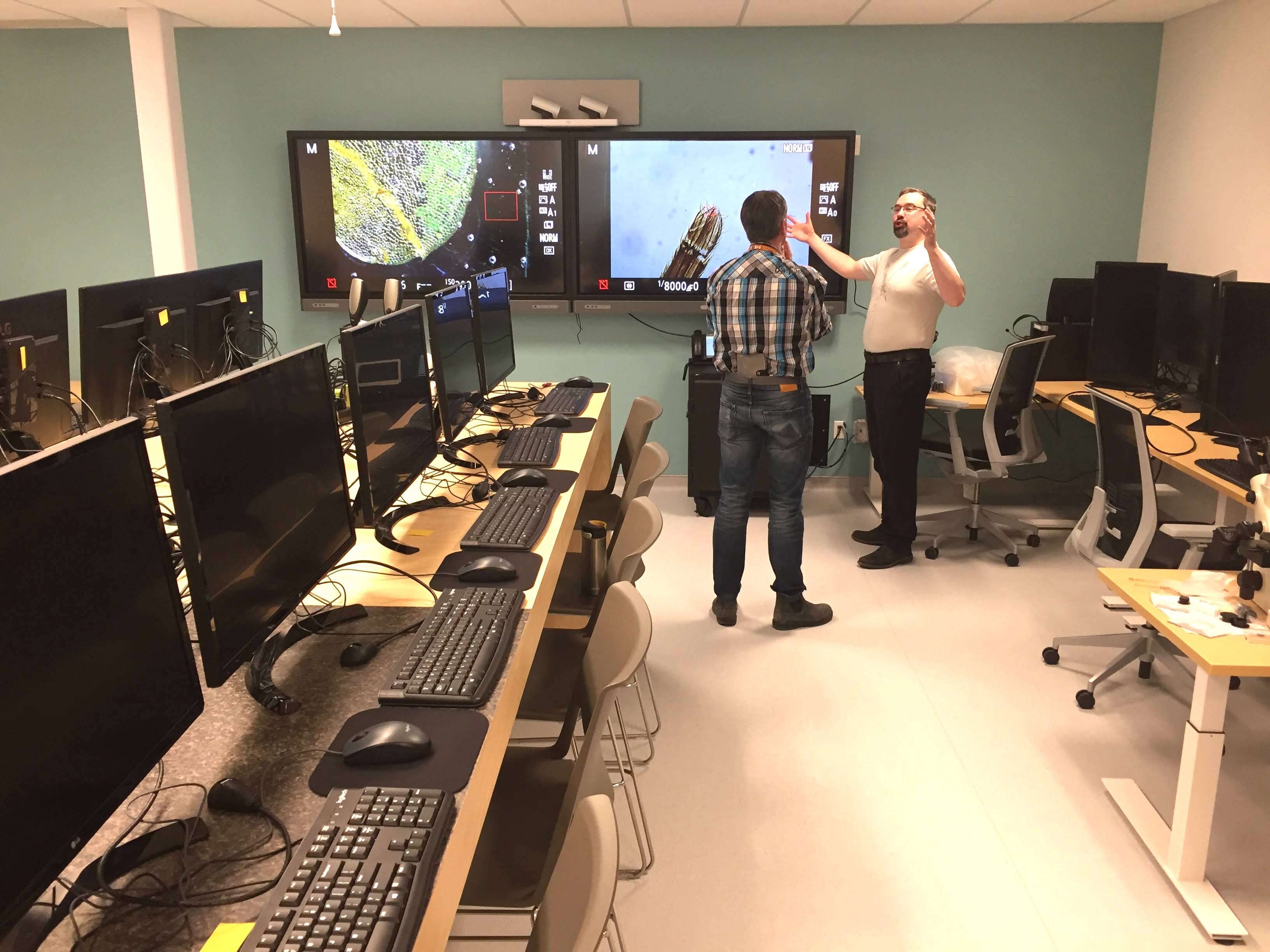
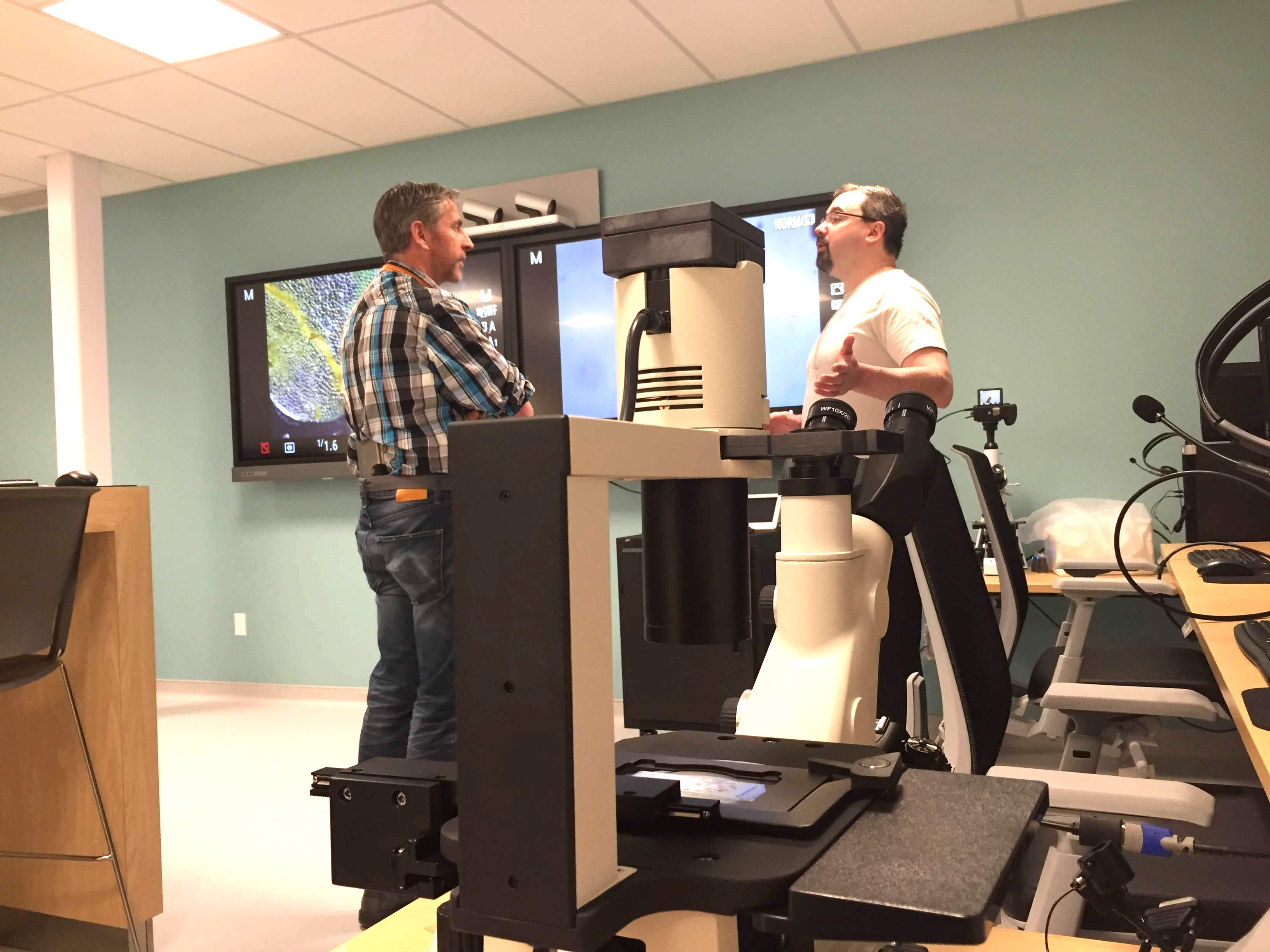


For more information on the official opening and the POLAR-led activities, please contact Marie-Eve at marie-eve.larocque@polar.gc.ca.
POLAR Events Calendar

You will find below the latest version of the POLAR events calendar, including upcoming events and conferences for your information.
Note: The calendar is subject to change. Any travel has to be pre-approved by Directors (and above for international destinations).
Please send any calendar updates or additions to Regienna by email at regienna.baggayan@polar.gc.ca and cc Amber McMachen at amber.mcmachen@polar.gc.ca.
POLAR events calendar: April 24, 2019

Key Outcomes from Senior Management Committee
Here are the key outcomes and decisions deriving from the April 10 Senior Management Committee meeting:
- - POLAR Policy and Guide on Conflict of Interest and Post-Employment is approved.
- - Additional work required on Short-term housing acquisition strategy. FFM to pose additional questions to staff to gauge interest in alternatives to government housing. More precision to be added regarding timing on options for the strategy.